Are you looking to enhance your pharmacy's clinical services? Partnering with healthcare providers can significantly improve patient outcomes and streamline operations. By leveraging the unique expertise of pharmacists, we can create a more integrated approach to health management that benefits everyone involved. If you're curious about how to establish a successful pharmacy clinical service partnership, read on for some valuable insights!
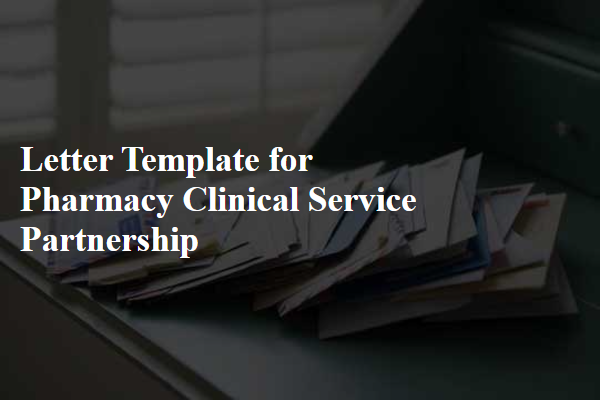
Introduction and Purpose Statement
Pharmacy clinical service partnerships play a crucial role in enhancing patient care within healthcare systems. The primary purpose of establishing such partnerships is to improve medication management, leading to better health outcomes. Collaborative initiatives can reduce hospital readmissions, promote adherence to prescribed therapies, and empower patients with education regarding their medication regimens. Engaging community pharmacies, particularly in underserved areas, strengthens access to essential clinical services. These partnerships facilitate the integration of pharmacists as vital healthcare providers, ensuring comprehensive care aligned with standards set by organizations like the Joint Commission. Ultimately, effective collaboration between pharmacies and healthcare entities fosters a patient-centric approach, enhancing the overall quality of care delivered.
Description of Services Offered
Pharmacy clinical services encompass a range of specialized healthcare offerings aimed at optimizing patient outcomes and ensuring safe medication management. Services include medication therapy management (MTM), which involves comprehensive medication reviews and identification of potential drug interactions. Immunization services provide vaccinations for diseases such as influenza and COVID-19, ensuring public health safety. Disease state management focuses on chronic conditions like diabetes and hypertension, offering personalized education and monitoring. Furthermore, medication synchronization assists patients in aligning prescription pick-ups for convenience, while adherence programs promote consistent medication usage. These services are typically offered in community pharmacies, hospitals, or specialized healthcare facilities, fostering collaboration with healthcare providers to enhance patient care and streamline treatment protocols.
Mutual Benefits and Goals
A pharmacy clinical service partnership can enhance patient care by integrating the expertise of pharmacists within medical teams, focusing on chronic disease management, medication therapy management, and patient education initiatives. Pharmacists, with their extensive knowledge of pharmacology and drug interactions, can help optimize medication regimens for conditions such as diabetes or hypertension, leading to improved health outcomes for patients. Collaborative efforts may also reduce hospital readmission rates and healthcare costs, benefiting both health systems and communities. Furthermore, leveraging technology (such as electronic health records) enables real-time communication between pharmacists and healthcare providers, ensuring seamless continuity in patient care and enabling timely interventions when necessary. Ultimately, mutual goals of reducing health disparities and promoting preventive care can be achieved through sustained engagement and shared resources in this partnership model.
Roles and Responsibilities
A pharmacy clinical service partnership involves distinct roles and responsibilities to optimize patient care and medication management. Pharmacists, as medication experts, provide clinical assessments and recommendations, focusing on medication therapy management (MTM) for chronic conditions such as hypertension and diabetes. They collaborate with healthcare providers in hospitals like Massachusetts General Hospital to ensure comprehensive treatment plans tailored to individual patient needs. Pharmacy technicians support the pharmacists by handling administrative tasks, including inventory management and patient communication, allowing pharmacists to focus on direct patient care. Additionally, data analysts can track outcomes and assess the effectiveness of clinical interventions, leading to improved medication adherence and overall patient health. Regular training sessions, often held at community health centers, ensure that all team members stay updated on best practices and emerging therapies, strengthening the partnership's impact on patient outcomes.
Terms and Conditions
The partnership between pharmacies and clinical service providers involves specific terms and conditions that govern collaboration and operational practices. These agreements typically stipulate roles and responsibilities for each party, including medication management and patient care services provided by pharmacists. Confidentiality clauses protect patient information, ensuring compliance with regulations like the Health Insurance Portability and Accountability Act (HIPAA), which safeguards sensitive health data in the United States. Performance metrics may be outlined, analyzing outcomes to evaluate partnership effectiveness. Additionally, any financial arrangements or reimbursement procedures are clearly defined to maintain transparency. Regular meetings for review purposes could be scheduled to assess ongoing cooperation and address any challenges, ensuring a robust framework for better patient-centered care.
Letter Template For Pharmacy Clinical Service Partnership Samples
Letter template of collaboration request for pharmacy clinical service partnership
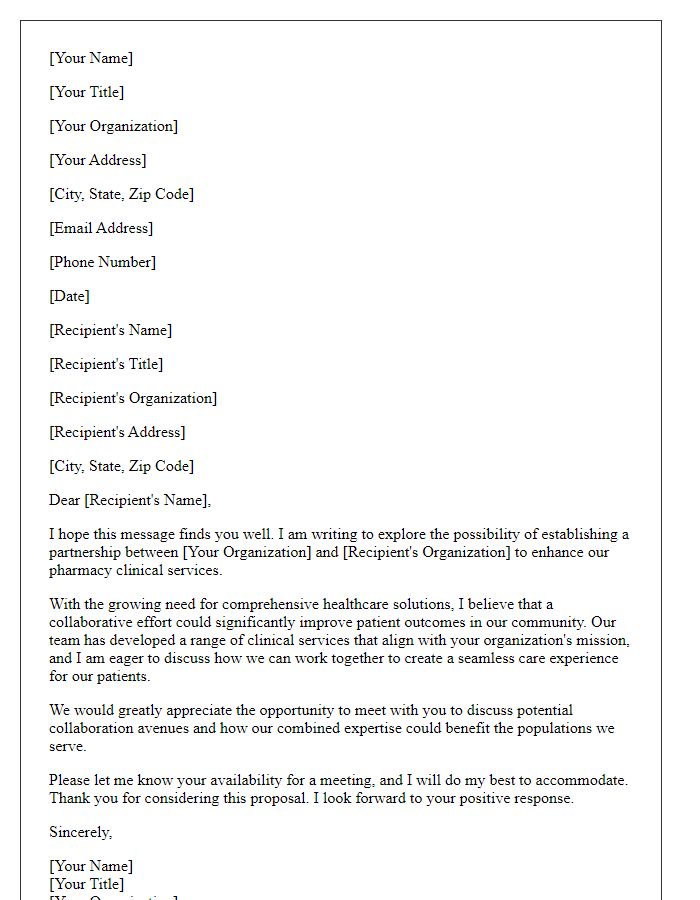
Letter template of invitation to pharmacy clinical service collaboration
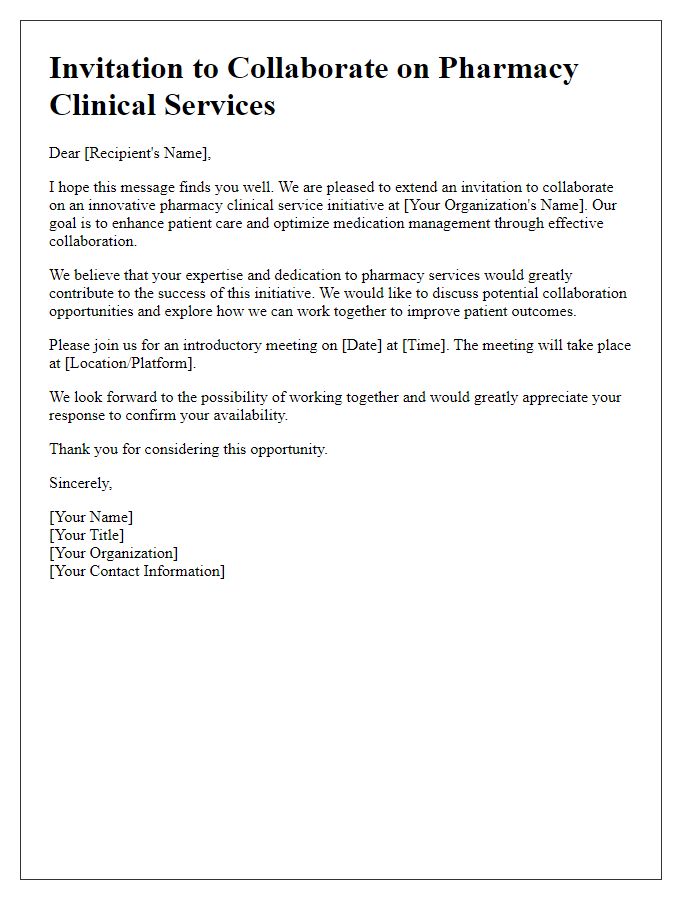
Letter template of introduction for pharmacy clinical service joint venture
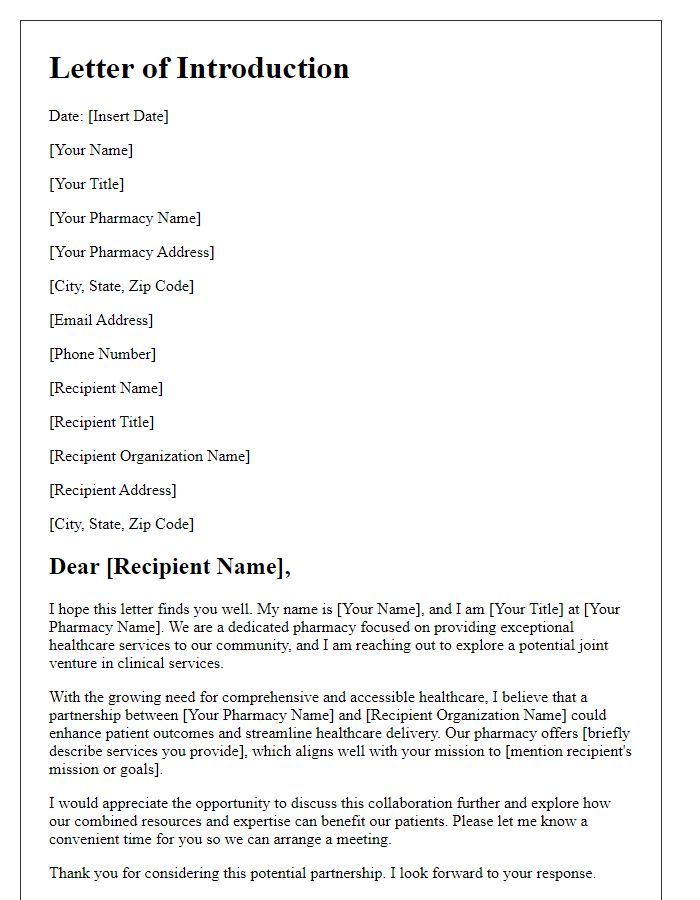
Letter template of endorsement for pharmacy clinical service partnership
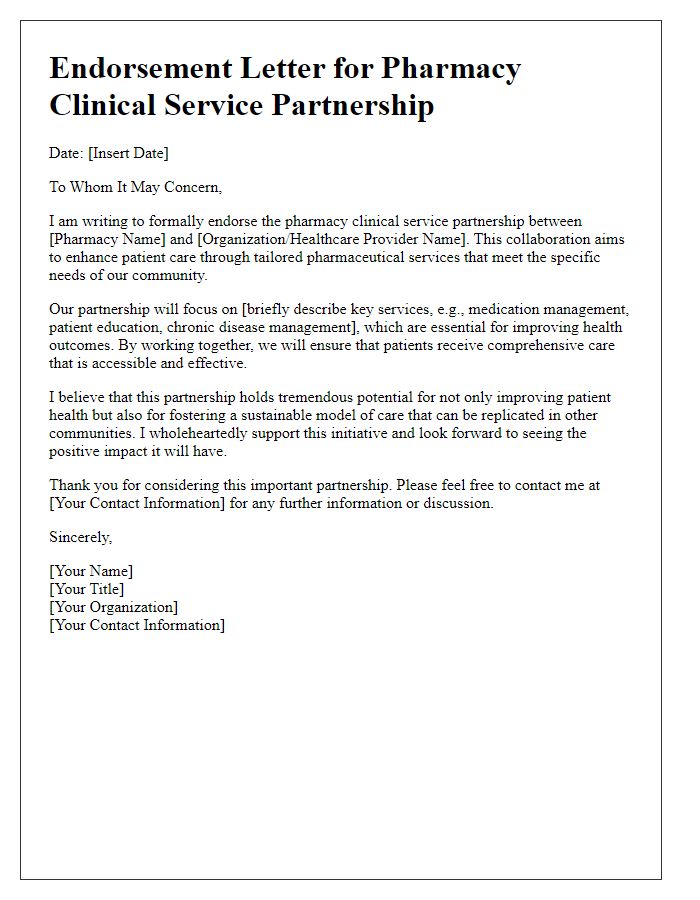
Letter template of notification for pharmacy clinical service cooperation
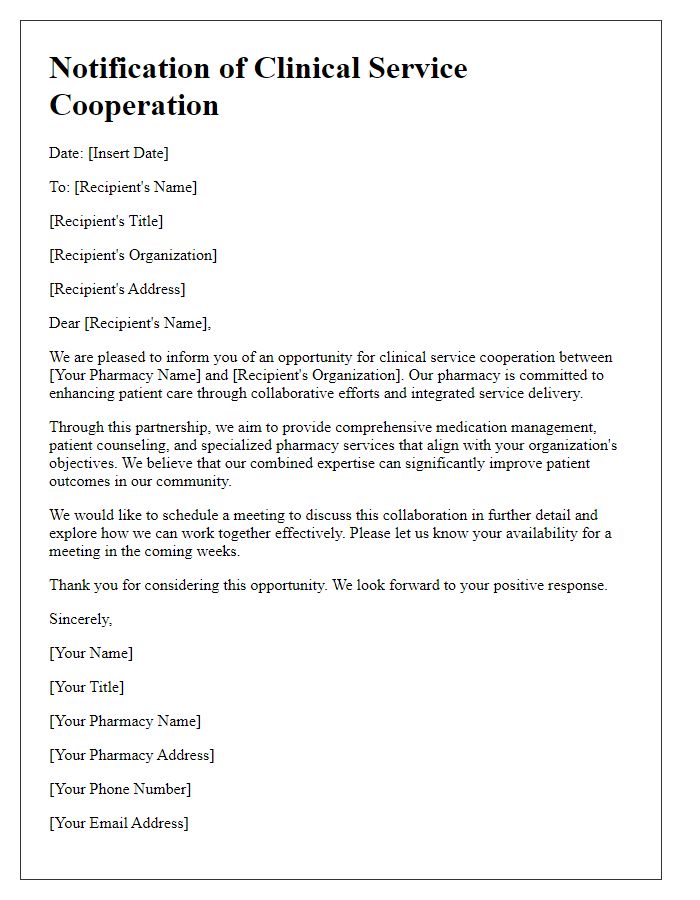

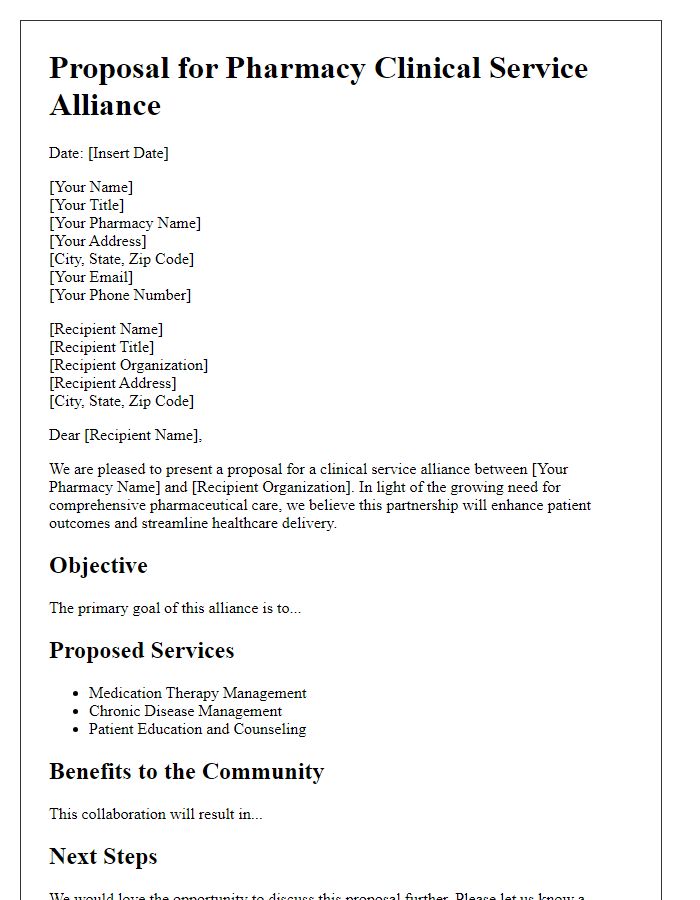
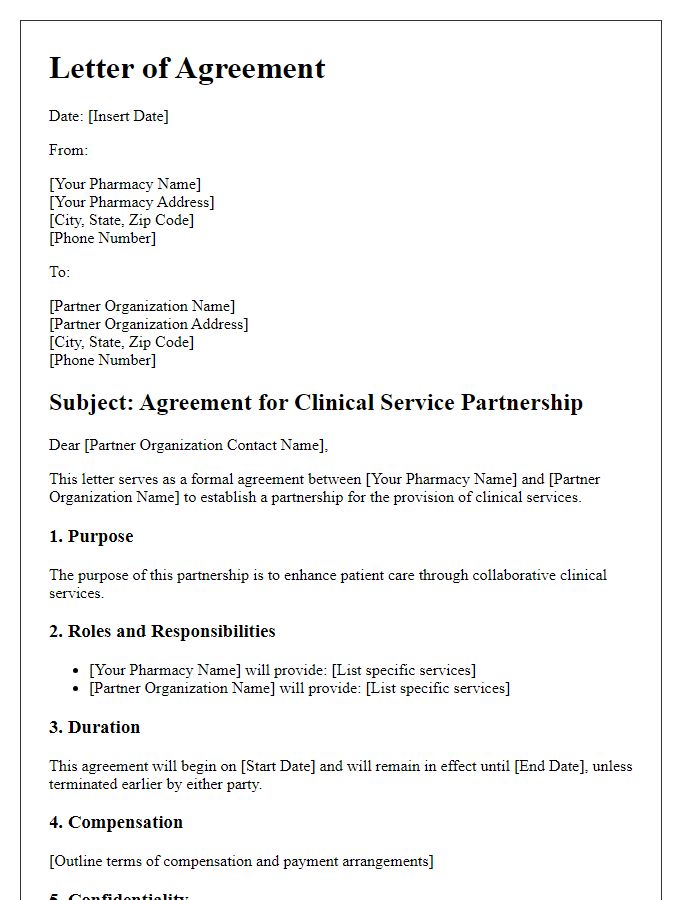
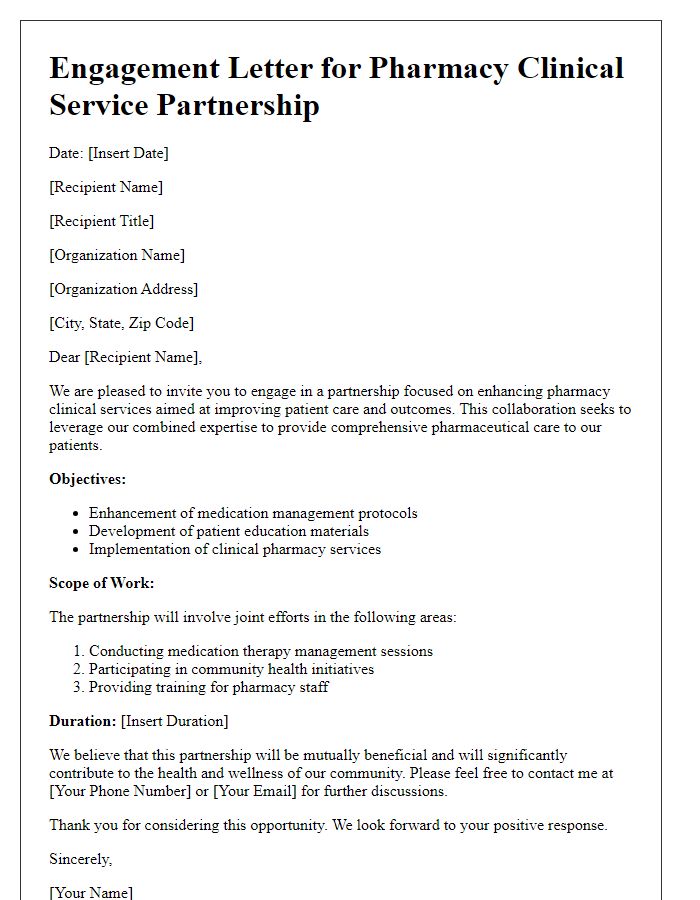
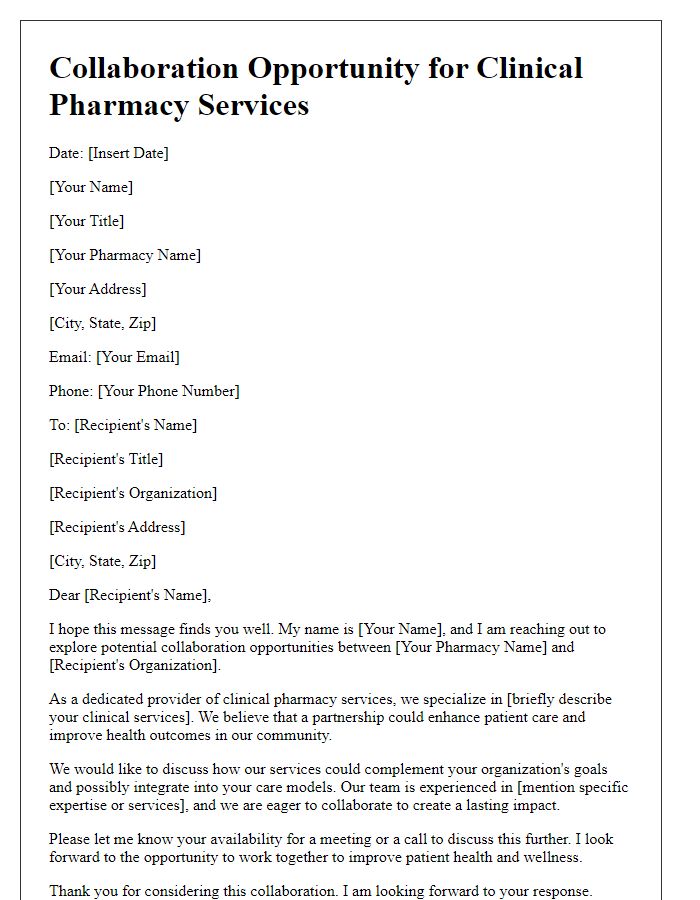
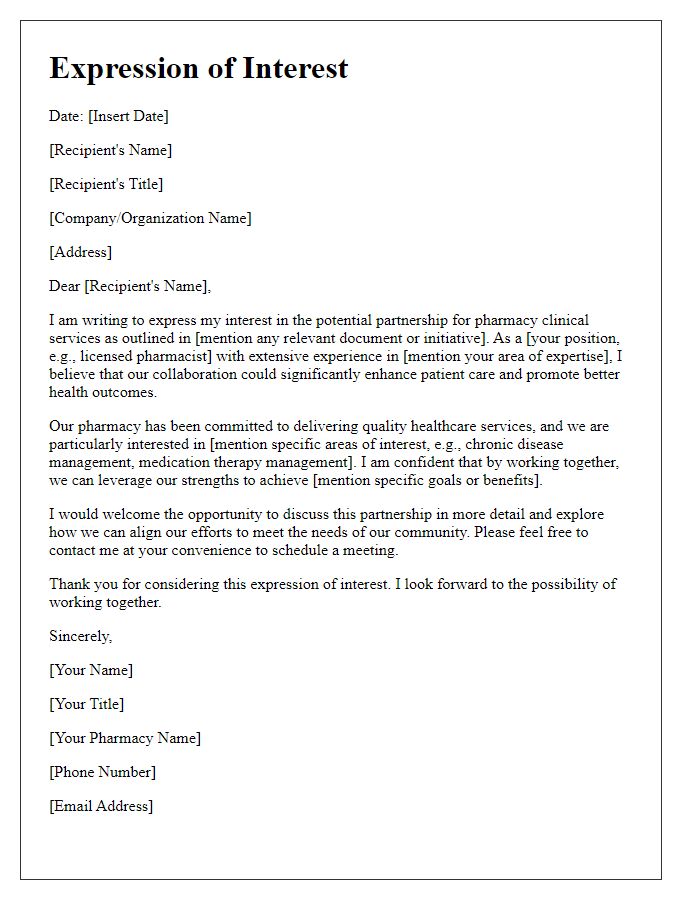


Comments